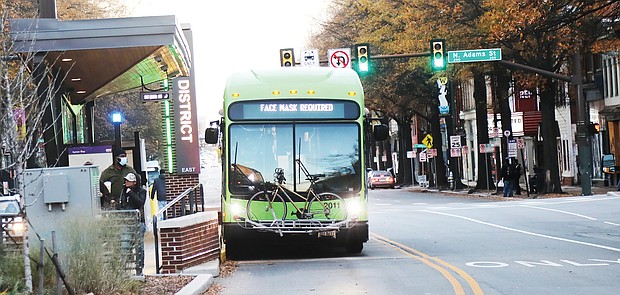
GRTC buses, like the one shown, kept their headlights on Tuesday in honor of late civil rights pioneer Rosa Parks, who helped launch the modern Civil Rights Movement. She lit the spark 65 years ago on Dec. 1, 1955, when she was arrested in Montgomery, Ala., for refusing to give up her bus seat to a white person and move to the rear of the bus that was reserved for Black people. Her action led to a yearlong public transit system boycott led by Dr. Martin Luther King Jr. and a U.S Supreme Court decision extending a ban on segregated public transit seating to previously exempt local bus systems. Because of the pandemic, GRTC dropped its tradition of reserving the front bus seat in honor of Ms. Parks, who died in 2005. A special message honoring Ms. Parks was included on the rotating messages on the digital header signs on each bus, GRTC officials stated.






